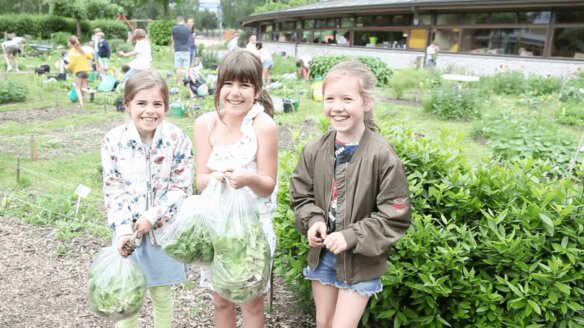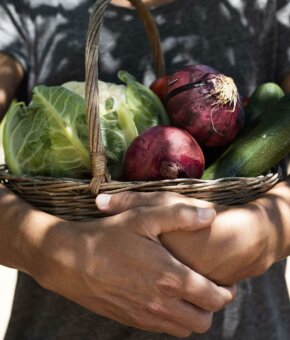
We have become estranged from nature, especially in cities. Fruits, vegetables and everything else you need can be bought at the supermarket. Due to this ‘convenience’, multiple generations of urban dwellers hardly know where their food comes from, much less how to grow it. By teaching children how to manage their own vegetable garden, their interest in healthy food and sustainable production methods is sparked.
Emerging children in nature through education is an effective way to make the next generation more aware of the pressing ecological challenges at hand and – more importantly – of the available solutions. In addition, many scientific studies suggest that experiences of nature boost academic learning, personal development and environmental stewardship.
Whilst nature-based education knows many forms, growing food is one of the most hands-on and tangible ways of sparking the next generation’s enthusiasm for sustainability. “This is especially true in cities, where most kids are completely out of touch with where their food comes from”, says Rimke, who is a coordinator of a farm in the Dutch city of Utrecht. On a weekly basis, students from a primary school visit the vegetable garden together with their teacher and a volunteer parent.
From seed to crop
During these visits, the children learn how to plant seeds, get rid of weeds, properly irrigate their crops and their favorite part: how to harvest their own produce. The kids visibly enjoy spending time tending to their garden and reaping the benefits of their own grown food. “Many students would normally not eat salad or radishes, but because they nurtured the produce from seed to crop, now they love it”, Rimke explains. “In addition, by experiencing firsthand how much time and effort it takes to produce fruits and vegetables, they learn about the value of food.”
A green movement
Luckily, this school is not the only one teaching its pupils about sustainable food production methods. Slowly, the global education system is reforming for the better, prioritizing time spend outside to boost pupil’s ecological understanding, wellbeing and concentration.
By including food production in curricula, we foster the next generation of food producing urban pioneers. – Adriaan van der Giessen
By enabling schools to provide their students with nature-based education, city government officials can make an impact that goes beyond these direct positive effects. “Education is a great tool policy makers can use to enable and stimulate both entrepreneurs and citizens to join the local or regional urban food movement”, says Food & Smart city specialist Adriaan van der Giessen. “By including food production in curricula, we can help children discover the food potential of their own region and thereby foster the next generation of food producing urban pioneers.”

Looking for more inspiring stories on sustainable food production straight to your inbox? Subscribe to our monthly newsletter!
Source header image: BrightVibes



